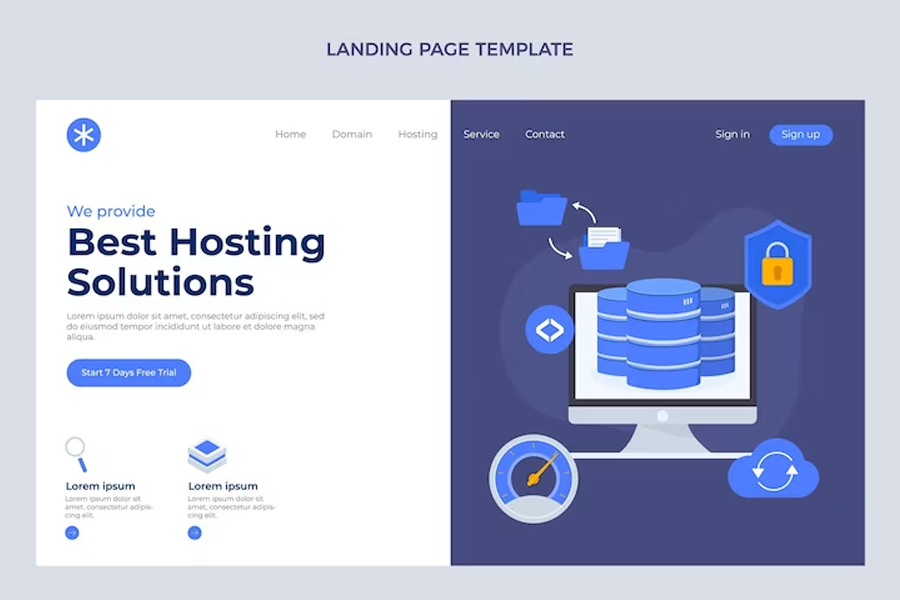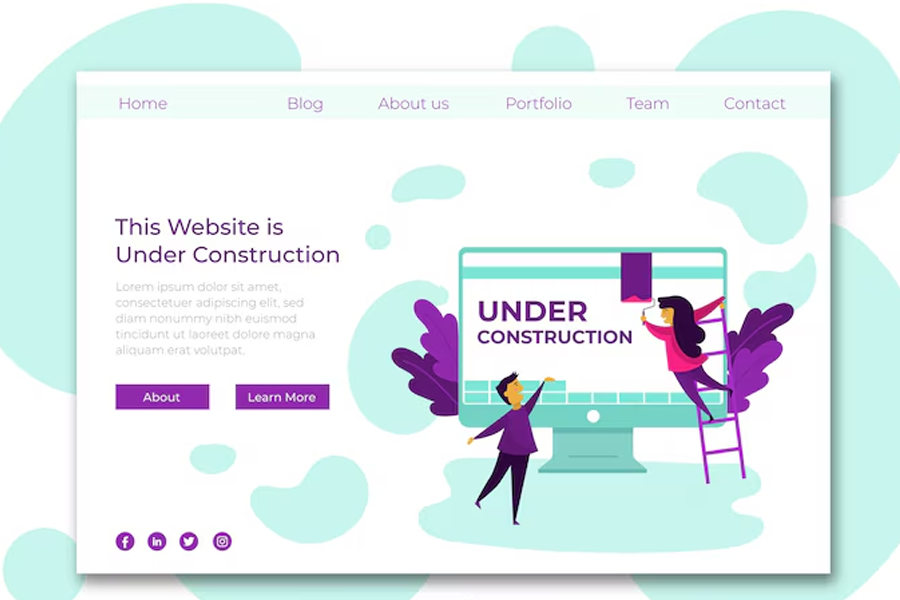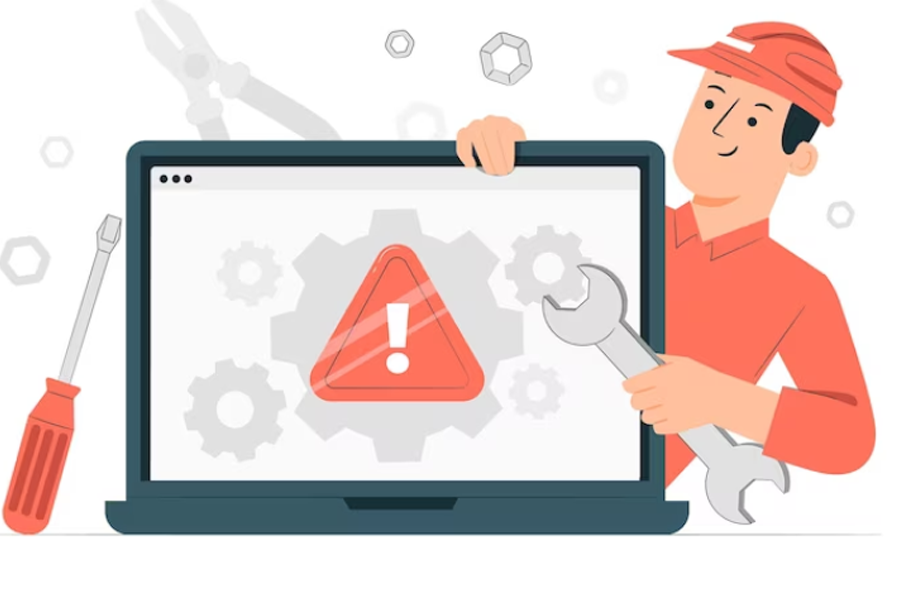Do you wish to own an online store and want to know the cost of an e-commerce website in India? You have come to the right place, as we will give you all the tea about the cost of building an ecommerce store.
The future of ecommerce in India looks promising as the market is projected to grow to $111.4 billion by 2025, up from $46.2 billion in 2020. The growth is slow, but it is happening.
Follow us as we discuss factors to consider when determining your e-commerce website cost in India. Should you use a website builder or hire ecommerce development companies? Find out in the paragraphs below!

Key Factors That Affect Ecommerce Website Costs in India
The cost of ecommerce website design in India will vary based on some essential factors. Firstly, you need to consider your online business goals and how a website can help you achieve them. Next, you should consider all the features necessary for your ecommerce platform.
The level of customization determines its price.
If you want to start selling online with more technical features, you should expect the cost to be higher. Other costs include hosting services, integration, payment gateways, and marketing expenses.
The following factors are essential in determining an ecommerce website development cost in India.
Website Design and Development
Your e-commerce site is like your offline business but has more features. Therefore, you must present it well and adopt a responsive web design to retain visitors. This is where expenses start to fly around. You can hire a development company for ecommerce website development or go the website builder route.
If you want fancier features, go for the earlier; and the latter is preferable for basic to mid features.
If you pay a website builder in India, you should budget from ₹5000 per month. While if you were hiring a developer, it should cost ₹ 1,50,000 – ₹ 4,00,000 ($1800 – $4800), more or less.
Hosting and Domain Registration
Hosting is like renting space on the internet to store your website’s files, while domain registration is like securing your website’s address (URL).
People cannot find your site online without hosting, so hosting costs are a must for your e-commerce site. Both domain and hosting are recurring expenses that you need to plan for.
In the India ecommerce market, the cost of hosting your site isn’t fixed due to the different hosting types. For example, dedicated hosting plans range from INR 6,500 to INR 21,000 per month, while a cloud hosting plan can range from INR 750 to INR 7500.
On the other hand, registering your domain name should be around ₹ 82.50, as that’s the cost of GoDaddy. However, you can opt for a free domain but with limited functionality.

Payment Gateway Integration
Ecommerce website development prices aren’t always fixed, and you need to ensure that you create a safe and secure way for customers to pay — that is where payment gateways come in.
They are third parties like Paytm and Razorpay that can handle customers’ payments, whether through their credit/debit cards or bank transfers. Your integration cost depends on transaction volume, supported payment method, and security features.
In India, the integration fee also depends on the payment processor (e.g., Stripe), but there’s usually a flat fee + 1% to 3% fee per transaction. When choosing a payment gateway, ensure it supports multiple payment methods and provides a seamless checkout experience.
Security and Compliance
If you want to sell online and aim to be trusted, you should opt for tight security of your sites.
Ensure your website builder or hosting provider has SSL certificates and firewalls and performs regular compliance to conceive sensitive information and maintain trust.
You may not pay anything extra besides your hosting fee when purchasing an SSL certificate because many hosting providers already include them in their packages.
SEO and Digital Marketing
Building a fantastic website is only half the battle; you must also attract visitors. Search Engine Optimization (SEO) and digital marketing are basics for driving traffic and increasing conversion rates for your ecommerce business.
SEO, like its name suggests, involves improving your website content and structure to rank higher in search engines results. On the other hand, digital marketing is a bigger online marketing branch that consists of but is not limited to SEO, pay-per-click (PPC) advertising, and social media marketing.
Truthfully, you can pay $0 for SEO, but you must be willing to take longer to see results. You can also pay for professional SEO tools like SEMrush and Ahrefs. SEMrush ranges from INR 9,007.91 to INR 34,646.32 monthly for an annual plan.

Estimating the Average Cost of Building an Ecommerce Website in India
Nowadays, anyone from any corner of the world can own a professional store online thanks to website-building tools. Estimating the cost of building ecommerce websites in India involves considering factors like security, customization, and maintenance costs.
The level of features you are looking for will determine the pan you should use. Below, we have categorized ecommerce solutions based on customization, functionality, maintenance, and design.
Open-source Ecommerce Website Costs
Open-source e-commerce platforms like WooCommerce are more affordable and customizable.
These platforms will provide the code and framework your site needs for free, but the costs include hosting fees, domain registration, SSL certificates, and other additional features.
Open source website should cost a one-time expense between ₹35,000 to ₹80,000 for a standard website with minimal features. At the same time, it may sit at ₹70,000 to ₹4,00,000 for a premium website. The perks here are that it’s scalable and more customizable.
Custom Ecommerce Website Costs
This involves hiring an experienced developer or agency to develop your site. In this case, you cover website development costs for code written from scratch.
Custom-made websites are more expensive than the other two as development prices should be between ₹1,50,000 to ₹20,00,000 or more.
However, while it is on the high side, a custom-made website’s long-term value and scalability are comparable to none. It offers the most custom functionality.
Template Ecommerce Website Costs
In the case of open source, existing codes are used, and custom-made online stores are coded from scratch. For template ecommerce websites, you will use pre-designed templates on SaaS platforms like NEXT BASKET.
You will pay a monthly subscription fee from ₹5,000 to ₹20,000 as you will not be coding. Template-based websites are convenient for beginners and easy to set up but have a customization limit based on plan.

Factors That Influence the Cost of Ecommerce Site Development in India
Earlier, we discussed factors that affect the overall ecommerce website cost, but here, we will discuss website development prices only. We will examine the factors influencing website developers’ fees for basic and advanced features.
Below, we have listed five of them:
- Website Design Complexity and Customization: The complexity of the web design and customization you are aiming for will determine the costs. A simple design may equal lesser costs, but you should consider theme costs for website builders. You can opt for free themes to save business costs in the beginning.
- Functionalities and Features: Basic features like product listings, shopping carts, and checkout systems are standard. If those are the only things you want, the cost should be lower. Meanwhile, advanced features such as customer reviews, wish lists, or loyalty programs can raise expenses. Ensure you prioritize based on where you are with your business. As your business grows, it will need additional features.
- Third-party Integrations and API Development: If you want more features through third-party tools and APIs (Application Programming Interfaces) like payment gateways, shipping calculators, or inventory management systems, they likely attract additional costs. Select the integrations that are more important and urgent.
- Content Creation and Management: Boosting online sales requires creating high-quality content. This includes creating branding elements like a professional logo, product descriptions, images, and aesthetic videos. You may need to invest in a content management system (CMS) or pay the website developer to build one. Additionally, you should hire professional creators if you aren’t a content creator.
- Website Maintenance and Support: You must consider the maintenance cost for your sites to keep them running. You don’t want a case where potential customers can’t access your site because of bugs in code. Maintenance costs usually include software updates, security patches, bug fixes, and technical support. You should budget quarterly to yearly plans to guarantee your website is healthy.
It’s important to know that the various factors above here work together. For example, paying for a custom site will not make sense if you don’t have a maintenance budget.
So, consider your budget and the functionality you need. What trade-offs can you permit for sustainability? Ask yourself that.

Tips for Reducing Ecommerce Website Development Costs in India
In the previous section, we have subtly shared some tips for dropping website development costs. However, this section details saving money by investing in other areas of your e-commerce business.
The following are some practical tips:
- Opting for Pre-built Ecommerce Platforms and Templates: If you are on a tight budget, opt for template-based websites instead of building a custom site. Your goal should be acquiring new customers and getting more sales. Platforms like NEXT BASKET offer ready-made templates and features to help you set up a site quickly without needing to code.
- Prioritizing Essential Features and Functionalities: you should focus on what your site needs, not what you see others doing. It’s not wrong to emulate others, but it’s pretty expensive. Ensure you have added product listings, shopping carts, and payment options before extra features.
- Negotiating with Vendors and Developers: negotiation can be highly beneficial if you do it right. Consult with several developers to get their quotes and negotiate for the best price. Some may be more open to negotiation than others, so you should get a price for your site through their technique.
- Doing Thorough Research and Due Diligence: Before committing to anything, you should have done market research and analysis. All of these should be in your ecommerce business plan alongside the buyer’s persona or your audience.
At what stage would you need an ecommerce store? What features should you aim for? How much are you willing to pay for the development of a site?
You should answer questions like these before making any decision. Although you are trying to save money, only select the best website builders and developers.
Other Ecommerce Website-related Costs to Consider in India
Aside from the development cost, there are more costs to consider when setting up a business online in India.
These may include:
- Digital Marketing and Advertising Expenses: After setting up your website, you need to adopt strategies (which may cost extra) to grow that website. If you choose to run paid ads rather than going the organic route, you will spend more money and need to budget for it, depending on the duration and goal of the ad.
- Staffing and Personnel Costs: If you don’t have a staff or a team, you don’t need to worry about this. However, it is not advisable to do everything on your own. You need to consider the cost of training people to use these platforms aside from salaries when hiring people. Another tip is to hire freelancers. You don’t need to train them; you just pay per hour or deliverable.
- Inventory and Fulfillment Costs: you should have a budget for managing your inventory and getting products from the storehouse to consumers. Customers will handle their delivery fees, but you should ensure the storehouse is near your customers to cut the delivery cost. This way, you encourage customers to patronize you.
- Legal and Compliance Expenses: Ensuring your business is legal and compliant with regulations is essential to avoid paying fines. Use a lawyer’s help to ensure you follow all the rules and protect your business from legal issues.
- Customer Service and Support Costs: It’s important to track customer data using analytics tools to give them the best experience. Besides providing channels for communication and complaints like live chats, social media, and email, you should also personalize your marketing messages.
Going through the content of this piece shows you there is more to building a website than website development. You should consider the extra costs like content creation, SEO, marketing, and legal, among many other factors.
Frequently Asked Questions
How much does it cost to build an eCommerce website from scratch in India?
The average ecommerce website development cost in India is between ₹ 1,50,000 to ₹ 4,00,000 ($1800 – $4800) if you’re starting from scratch.
How much does an eCommerce app cost in India?
It should take between $100,000 and $500,000 to build an ecommerce app in India, depending on the functionalities.
Which ecommerce business is best in India?
You can sell beauty products, snacks, health-related products, and handmade items if you are considering starting an e-commerce business in India.